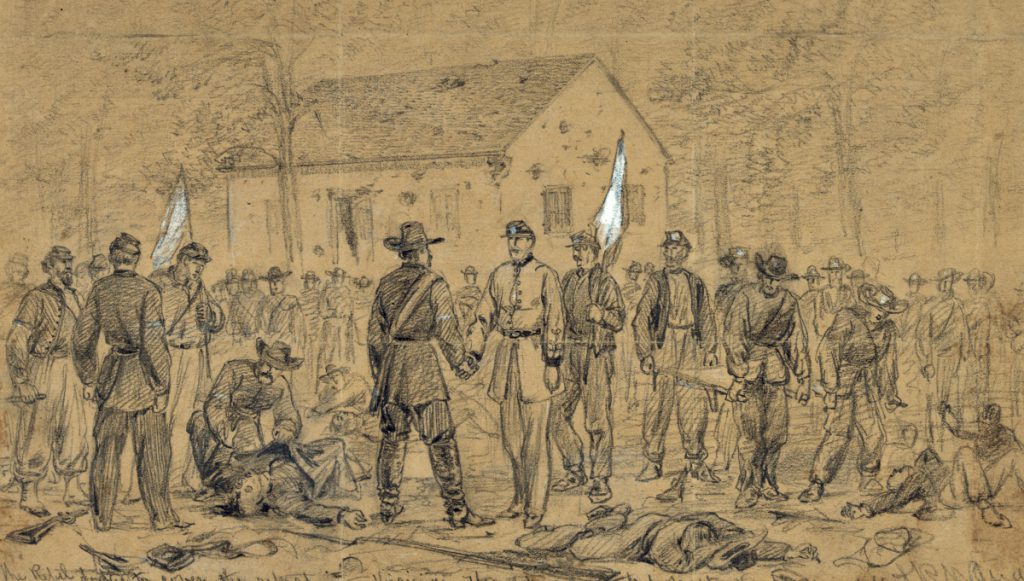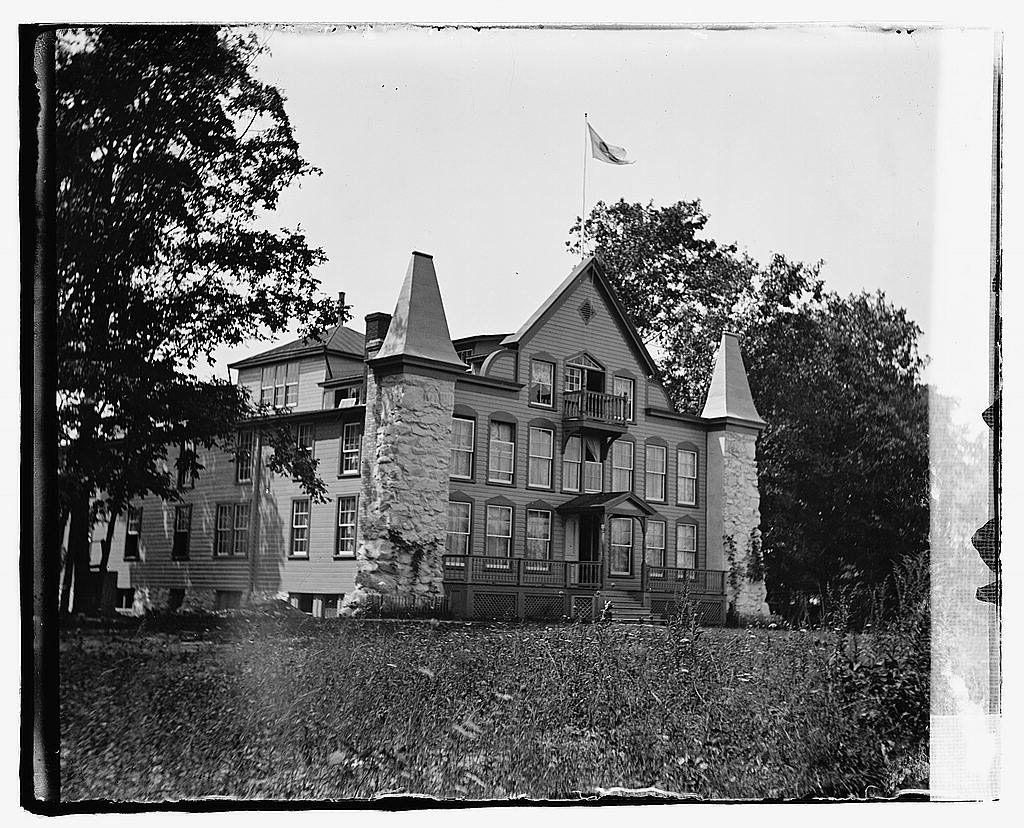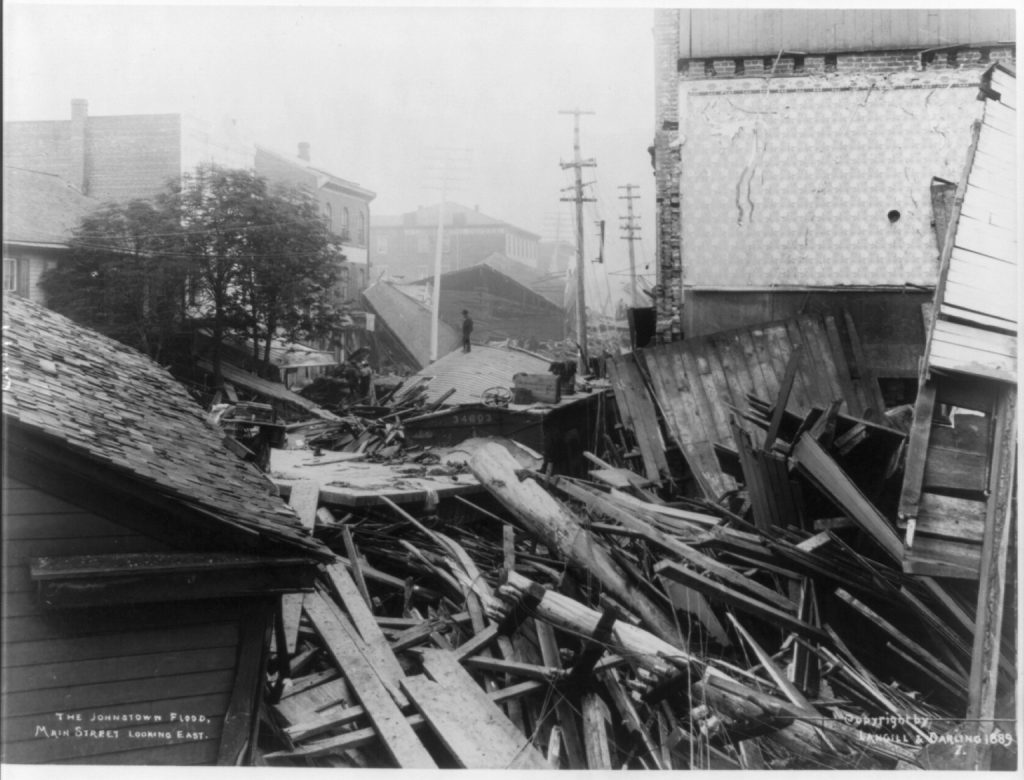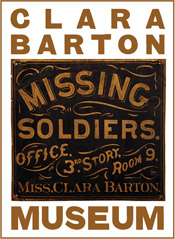Clara Barton: Leader for Emergency Relief
Clara Barton’s life and work paralleled the development of international emergency relief and its spread throughout the world. Throughout that process, she was an important leader in its development. The vehicle she ultimately used to facilitate emergency relief in peace and war was the Red Cross, which still offers international aid to this day.
Barton’s first encounters with relief work came during the American Civil War. One of the important policies to come out of the Civil War which likely influenced Barton was the Winchester Accord. In the spring of 1862, the Union and Confederate armies reached the agreement. The accord regarded doctors as non-combatants, and established that they could not be held as prisoners of war but would be released in due time and allowed to return to their respective armies. Barton, who worked closely with many of these doctors, surely saw the value of this, especially since it allowed the surgeons to remain with the wounded without the concern of being captured. This practice led directly to the soldiers receiving better care than they otherwise would have, establishing a critical precedent in American wartime medical care.

Flag of Truce after the Battle of Antietam in order to collect the wounded. Sketch by Alfred Waud, September 1862. Courtesy of the Library of Congress
Meanwhile, in Europe, several nations formalized a set of humanitarian laws on a much larger scale than the Winchester Accord. The International Committee of the Red Cross was founded in 1864 after the horrors of the Battle of Solferino (1859) came to light. The Treaty of Geneva was signed by twelve nations and outlined rules for the humane treatment of the wounded, prisoners of war, and noncombatants during war. It also provided for the neutrality of both relief workers and the wounded themselves.
After the Civil War, while in Geneva, Switzerland on the advice of her doctor to relax, Barton was finally introduced to the Treaty of Geneva. As someone who spent countless hours face to face with the human wreckage of war, Barton found it almost incomprehensible that the United States refused to sign the treaty, and began to work tirelessly to start the American Red Cross. She lobbied Congress, promoted the Red Cross ideals to the public, and pushed for its ratification until 1881, when the Senate and President Chester Arthur finally ratified the Geneva Convention.

Red Cross Headquarters and Clara Barton Home, Glen Echo, Maryland. Courtesy of the Library of Congress
Barton founded the first local chapter of the American Red Cross in Dansville, New York, in 1881, and served as the President of the American Red Cross until 1904, eight years before her death. She was single-minded in her devotion to the organization, and continued to expand the influence of the Red Cross throughout her tenure. Her Civil War experiences taught her that, to be effective, relief efforts had to be rapid, since the need was immediate, and not tied to political influences.
Clara Barton made that point eloquently before Congress in 1901. “The Red Cross in its nature, its aims and purposes, and consequently, its methods, is unlike any other organization in the country. It is an organization of physical action, of instantaneous action, at the spur of the moment; it cannot await the ordinary deliberation of organized bodies if it would be of use to suffering humanity.”
One of the early examples of large scale Red Cross relief in the United States was the Johnstown Flood of 1889. An editorial in the local paper conveyed just how important the immediate help from Clara Barton and the Red Cross was to Johnstown. “We cannot thank Miss Barton in words. Hunt the dictionaries of all the languages and you will not find the signs to express our appreciation of her and her work. Try to describe the sunshine. Try to describe the starlight. Words fail…”

Main street in Johnstown after the 1889 flood. Courtesy of the Library of Congress
Between her birth in 1821 and her death in 1912, Barton experienced first-hand–and led important efforts to ensure–the rise of emergency relief in both peace and war. The groundwork laid out by Barton and her contemporaries still reverberates today with countries seeking to lessen the horrors of war and natural disasters to the greatest extent possible. Barton’s efforts truly exemplify the maxim that “the paths of charity are over roadways of ashes.”
Tags: American Red Cross, Battle of Solferino, Clara Barton, Geneva Convention, Johnstown Flood, Red Cross, Winchester Accords Posted in: Clara Barton: American Legend

